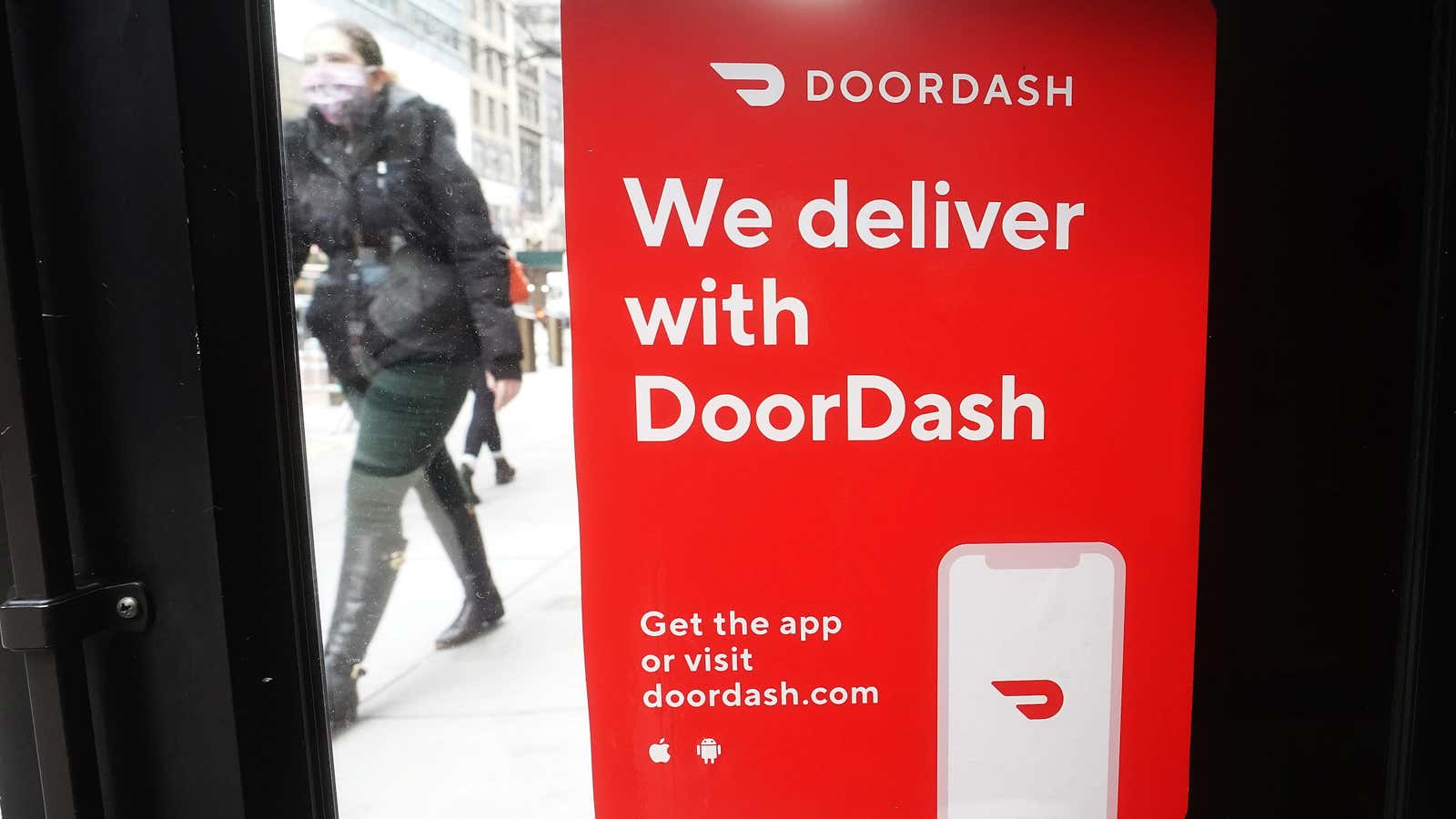Food delivery companies are hungry for more.
DoorDash announced yesterday (Nov. 10) it is buying Wolt, a Helsinki-based food delivery startup, in an all-stock transaction valued at $8 billion, marking the latest consolidation in the food delivery market.
The deal will help DoorDash, which is the market leader of the US food delivery market, expand its international presence. Wolt, co-founded and led by CEO Miki Kuusi, is in 23 countries including much of northern Europe. It’s in only one market—Japan—where DoorDash currently operates. Kuusi will run DoorDash International, reporting to Tony Xu, DoorDash’s CEO.
DoorDash would benefit from Wolt’s focus on efficiency. Founded in Finland, with a population under 6 million, Wolt had to learn how to operate in a market with low population density, high labor costs, and harsh winters, forcing the delivery company to be efficient in delivery logistics, said Kuusi on DoorDash’s third-quarter earnings call with investors and analysts.
The deal announcement came as part of DoorDash’s most recent earnings report, where it reminded investors that it has yet to turn a profit. In the three months ending Sept. 30, DoorDash’s net loss more than doubled to $101 million, up from $43 million in the same period last year.
Though the pandemic has played in food delivery companies favor, as people have now gotten accustomed to ordering meals and groceries online, DoorDash and its competitors operate with low-margins and many have yet to break even. With delivery fees a point of tension for both customers and restaurants, analysts have said it was inevitable that food delivery companies would consolidate to get to a path of profitability.
Consolidation in the food delivery space is likely going to continue
In June 2020, Just Eat Takeaway, an Amsterdam-based food delivery company, bought Grubhub, a Chicago-based food delivery company, which in turn owns Seamless, in an all-stock transaction valued at $7.3 billion, helping to expand its US presence. Uber has played a key role in consolidation, buying up both Postmates, a US food delivery company, and Cornershop, a Chile-based grocery delivery startup. But even as companies consolidate, new entrants are popping up such as super fast—and unprofitable—grocery delivery companies including Gorillas, Getir, and JOKR, which have raised combined venture capital funding north of $3 billion.
The increased market power could lead food delivery companies to command higher fees from customers or restaurants. The food delivery market, which had quickly grown during the pandemic, also started to raise scrutiny from US regulators around antitrust concerns.
Consolidation has moved beyond the US. “I think globally [there is] still ample room for consolidation,” Tom White, an analyst at DA Davidson, a financial services firm, wrote in an email to Quartz. “Not sure how much more room is left for consolidation amongst the big restaurant delivery players in the US though.”
With US food delivery companies expanding beyond food, White says he expects to see ongoing deals in the US around new category expansions such as delivery of grocery, alcohol, pharmacy, and retail.
